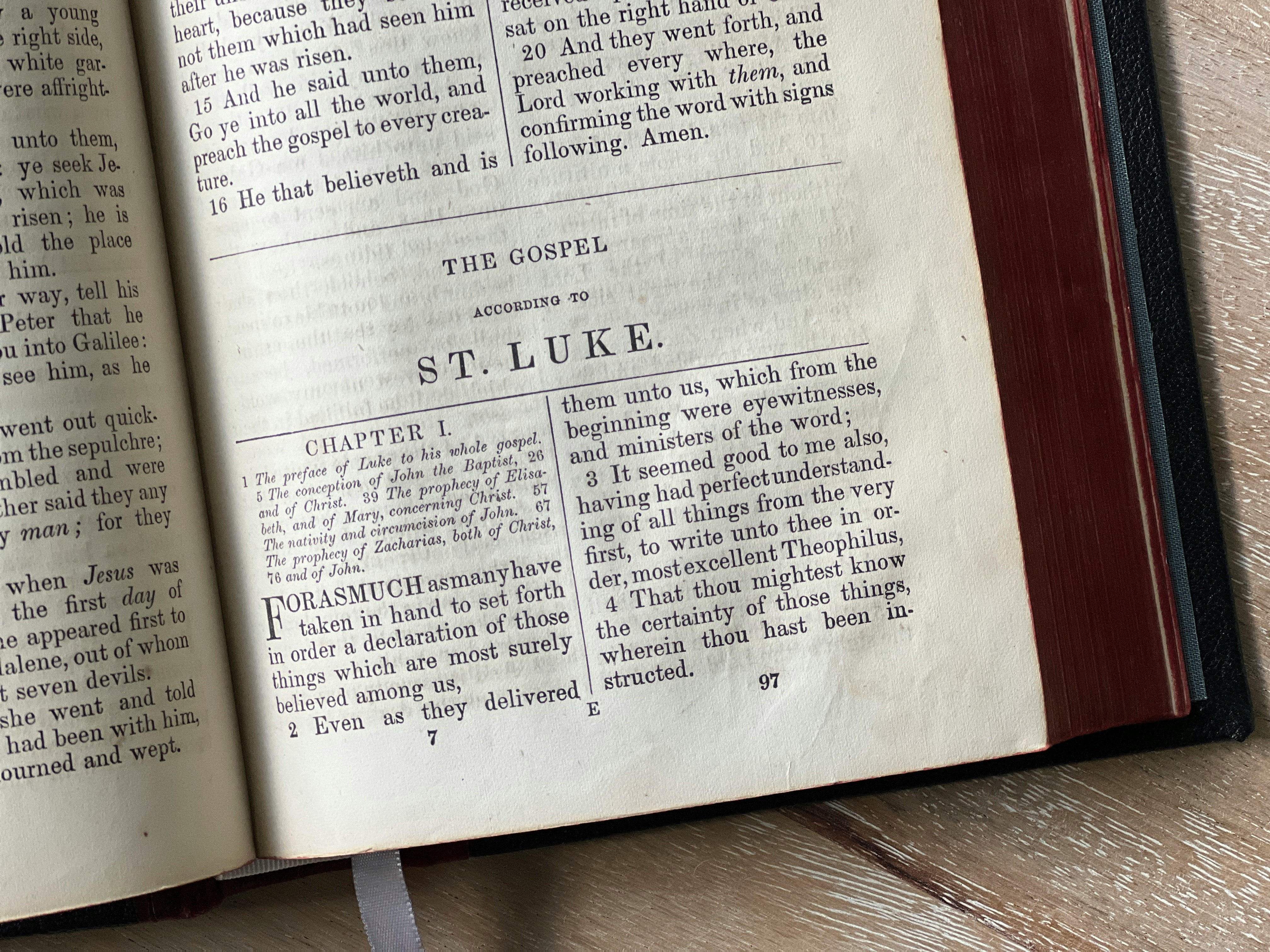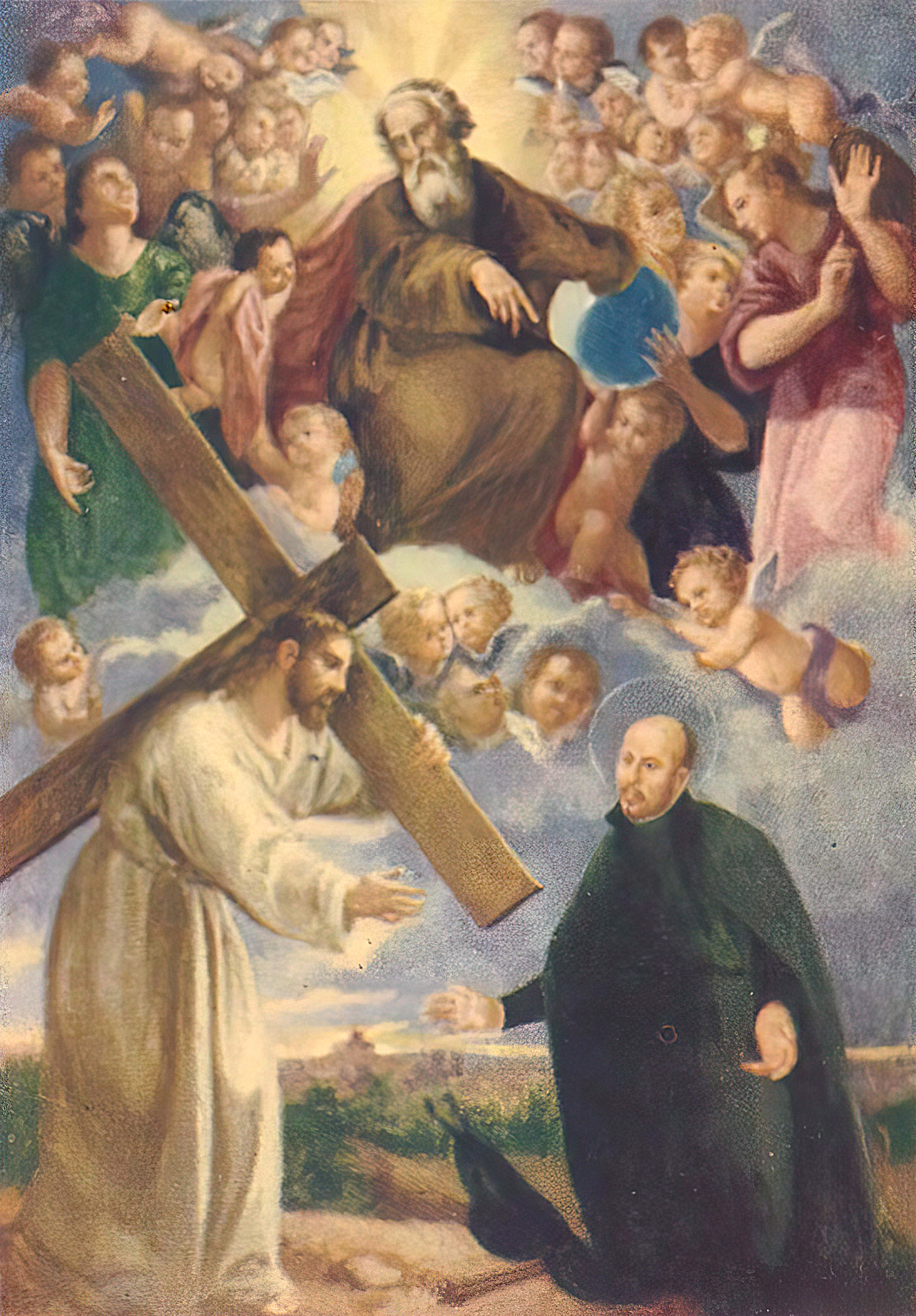There are several stories in Scripture that tell us that the Lord is coming soon and we should be ready, really ready. Today’s readings certainly point to that! For example, in the Gospel Jesus says, “You also must be prepared, for at an hour you do not expect, the Son of Man will come.” Are you tired of hearing it? We need to remind ourselves that the Lord God wants all of us to be with Him at the end of our time on earth.
Remember Noah? He must have been very tight with the Lord, to give him a job that would save him and his family! What was going on when the Lord spoke to Noah? Well, It seems the whole world was partying down. So Noah listened to the Lord instead of putting Him on the back burner. When he started the ark, he was surely mocked and verbally abused and laughed at. I think I remember a song called: You and Me Against the World. Are you and I against the world? Do we ponder what might be coming?
Noah had quite a job to do! Do you remember what kind of wood the Lord told him to build it out of? Gopher wood. Guess what? According to the experts there was no gopher wood in that area. I have no idea how he pulled it off. It took many years to complete the ark. As you may know there is a life-size model of the ark down in Kentucky. It is 510 feet long, 85 feet wide and 51 feet high. If this is a duplicate of what Noah built, then all I can say is, “Wow!”
Let’s take a look at what Noah had to do. First of all he had to be obedient and to take God’s word to his heart. Then he went into action, for a very long time. He saved his family but not the rest of the world. They were too busy with their daily lives and all the things that they were involved in, good and bad. Does any of that sound like what is going on today? Trust me, you are not going to get what you need from the daily news broadcast. But I think you already know that. I trust that you and I are going to give this “being ready” thing some serious pondering.
Today is the feast day of Saint John of Capistrano. I’ve heard his name many times but did not know much about him. I highly recommend that you Google him and search for his bio. You will be amazed. One thing that he did was to lead an army against the Ottomans when he was 70 years old! Wow! May we imitate St. John’s willingness to live for Christ and be ready whenever He calls us.
Serving with joy!
Hay varias historias en las Escrituras que nos dicen que el Señor viene pronto y que debemos estar listos, realmente listos. ¡Las lecturas de hoy ciertamente señalan eso! Por ejemplo, en el Evangelio Jesús dice: “Pues también ustedes estén preparados, porque a la hora en que menos lo piensen, vendrá el Hijo del hombre.” ¿Estás cansado de escucharlo? Tenemos que acordarnos que el Señor Dios quiere que todos estemos con Él al final de nuestro tiempo en la tierra.
¿Te acuerdas de Noé? ¡Debe haber sido muy cercano al Señor, para darle un trabajo que lo salvaría a él y a su familia! ¿Qué estaba pasando cuando el Señor le habló a Noé? Bueno, parece que todo el mundo estaba de fiesta. Entonces Noé escuchó al Señor en lugar de dejarlo en un segundo plano. Cuando puso en marcha el arca, seguramente se burlaron de él, lo insultaron verbalmente y se rieron de él. Creo que recuerdo una canción llamada: You and Me Against the World (Tú y yo contra el mundo). ¿Estamos tú y yo contra el mundo? ¿Pensamos en lo que podría venir?
¡Noé tenía un gran trabajo que hacer! ¿Te acuerdas con qué tipo de madera el Señor le dijo que la construyera? Madera de gofer. ¿Adivina qué? Según los expertos, no había madera de gofer en esa zona. No tengo idea cómo lo logró. Le tomó muchos años completar el arca. Como quizás sepas, hay un modelo de tamaño natural del arca en Kentucky. Tiene 510 pies de largo, 85 pies de ancho y 51 pies de alto. Si esto es un duplicado actual de lo que construyó Noé, entonces lo único que puedo decir es: “¡Que increíble!”
Echemos un vistazo a lo que Noé tuvo que hacer. Primero que todo, tuvo que ser obediente y tomar la palabra de Dios en su corazón. Luego entró en acción, por un tiempo muy largo. Salvó a su familia, pero no al resto del mundo. Estaban demasiado ocupados con sus vidas diarias y todas las cosas en las que estaban involucradas, buenas y malas. ¿Algo de eso suena como lo que está sucediendo hoy? Créeme, no vas a obtener lo que necesitas de la transmisión diaria de noticias. Pero creo que eso ya lo sabes. Confío en que tú y yo vamos a reflexionar seriamente sobre este asunto de “estar preparados”.
Hoy es el día festivo de San Juan de Capistrano. He oído su nombre muchas veces, pero no sabía mucho sobre él. Te recomiendo encarecidamente que lo busques en Google y leas su biografía. Te vas a sorprender. Una de las cosas que hizo fue liderar un ejército contra los otomanos cuando tenía 70 años. ¡Guau! Imitemos la disposición de San Juan de vivir para Cristo y estar preparados cuando Él nos llame.
¡Sirviendo con alegría!
 Deacon Dan Schneider is a retired general manager of industrial distributors. He and his wife Vicki have been married for over 50 years. They are the parents of eight children and thirty-one grandchildren. He has a degree in Family Life Education from Spring Arbor University. He was ordained a Permanent Deacon in 2002. He has a passion for working with engaged and married couples and his main ministry has been preparing couples for marriage.
Deacon Dan Schneider is a retired general manager of industrial distributors. He and his wife Vicki have been married for over 50 years. They are the parents of eight children and thirty-one grandchildren. He has a degree in Family Life Education from Spring Arbor University. He was ordained a Permanent Deacon in 2002. He has a passion for working with engaged and married couples and his main ministry has been preparing couples for marriage.
Featured Image Credit: Elias Null, unsplash.com/photos/a-large-wooden-boat-sitting-on-top-of-a-beach-n2Q70DifYBY


 Tami Urcia grew up in Western Michigan, a middle child in a large Catholic family. She spent early young adulthood as a missionary in Mexico, studying theology and philosophy, then worked and traveled extensively before finishing her Bachelor’s Degree in Western Kentucky. She loves tackling projects, finding fun ways to keep her little ones occupied, quiet conversation with the hubby and finding unique ways to love. She works full time at Diocesan, is a guest blogger on
Tami Urcia grew up in Western Michigan, a middle child in a large Catholic family. She spent early young adulthood as a missionary in Mexico, studying theology and philosophy, then worked and traveled extensively before finishing her Bachelor’s Degree in Western Kentucky. She loves tackling projects, finding fun ways to keep her little ones occupied, quiet conversation with the hubby and finding unique ways to love. She works full time at Diocesan, is a guest blogger on 
 Kate Taliaferro is an Air Force wife and mother. She is blessed to be able to homeschool, bake bread and fold endless piles of laundry. When not planning a school day, writing a blog post or cooking pasta, Kate can be found curled up with a book or working with some kind of fiber craft. Kate blogs at
Kate Taliaferro is an Air Force wife and mother. She is blessed to be able to homeschool, bake bread and fold endless piles of laundry. When not planning a school day, writing a blog post or cooking pasta, Kate can be found curled up with a book or working with some kind of fiber craft. Kate blogs at 


 Deanna G. Bartalini, M.Ed.; M.P.A., is a certified spiritual director, writer, speaker and content creator. The
Deanna G. Bartalini, M.Ed.; M.P.A., is a certified spiritual director, writer, speaker and content creator. The 
 Kathryn Mulderink, MA, is married to Robert, Station Manager for Holy Family Radio. Together they have seven children (including Father Rob), and eleven grandchildren. She is President of the local community of Secular Discalced Carmelites and has published five books and many articles. Over the last 30 years, she has worked as a teacher, headmistress, catechist, Pastoral Associate, and DRE, and as a writer and voice talent for Catholic Radio. Currently, she serves the Church by writing and speaking, and by collaborating with various parishes and to lead others to encounter Christ and engage their faith. Her website is
Kathryn Mulderink, MA, is married to Robert, Station Manager for Holy Family Radio. Together they have seven children (including Father Rob), and eleven grandchildren. She is President of the local community of Secular Discalced Carmelites and has published five books and many articles. Over the last 30 years, she has worked as a teacher, headmistress, catechist, Pastoral Associate, and DRE, and as a writer and voice talent for Catholic Radio. Currently, she serves the Church by writing and speaking, and by collaborating with various parishes and to lead others to encounter Christ and engage their faith. Her website is 
 Mike Karpus is a regular guy. He grew up in Michigan’s Upper Peninsula, graduated from Michigan State University and works as an editor. He is married to a Catholic school principal, raised two daughters who became Catholic school teachers at points in their careers, and now relishes his two grandchildren, including the older one who is fascinated with learning about his faith. He also has served on a Catholic school board, a pastoral council and a parish stewardship committee. He currently is a lector at Mass, a Knight of Columbus, Adult Faith Formation Committee member and a board member of the local Habitat for Humanity organization. But mostly he’s a regular guy.
Mike Karpus is a regular guy. He grew up in Michigan’s Upper Peninsula, graduated from Michigan State University and works as an editor. He is married to a Catholic school principal, raised two daughters who became Catholic school teachers at points in their careers, and now relishes his two grandchildren, including the older one who is fascinated with learning about his faith. He also has served on a Catholic school board, a pastoral council and a parish stewardship committee. He currently is a lector at Mass, a Knight of Columbus, Adult Faith Formation Committee member and a board member of the local Habitat for Humanity organization. But mostly he’s a regular guy.
 Heather Orlowski and her husband are busy parents of two little girls (ages 2 and 4). The Catholic Church holds a special place in her heart and in her entire life. She attended Catholic schools from Kindergarten through college. She graduated from Aquinas College with a degree in Elementary/Special Education. Catholic Education is very important to her and she now teaches 1st and 2nd grades at St. Therese Catholic School. In her free time, she loves creating memories with her family and watching her little girls play soccer.
Heather Orlowski and her husband are busy parents of two little girls (ages 2 and 4). The Catholic Church holds a special place in her heart and in her entire life. She attended Catholic schools from Kindergarten through college. She graduated from Aquinas College with a degree in Elementary/Special Education. Catholic Education is very important to her and she now teaches 1st and 2nd grades at St. Therese Catholic School. In her free time, she loves creating memories with her family and watching her little girls play soccer. 



 Dr. Alexis Dallara-Marsh is a board-certified neurologist who practices in Bergen County, NJ. She is a wife to her best friend, Akeem, and a mother of two little ones on Earth and two others in heaven above.
Dr. Alexis Dallara-Marsh is a board-certified neurologist who practices in Bergen County, NJ. She is a wife to her best friend, Akeem, and a mother of two little ones on Earth and two others in heaven above.

